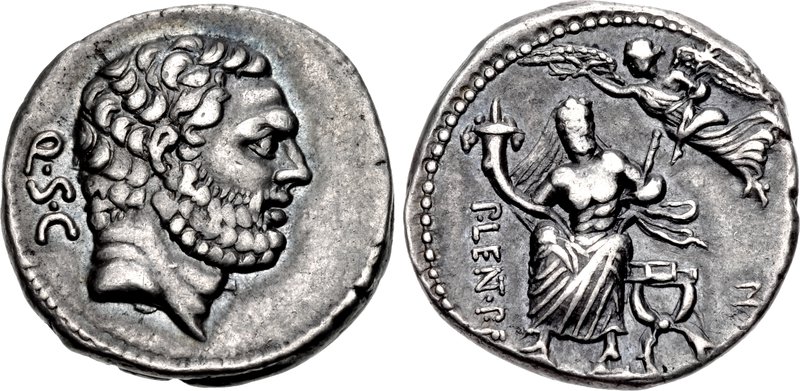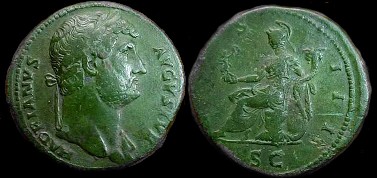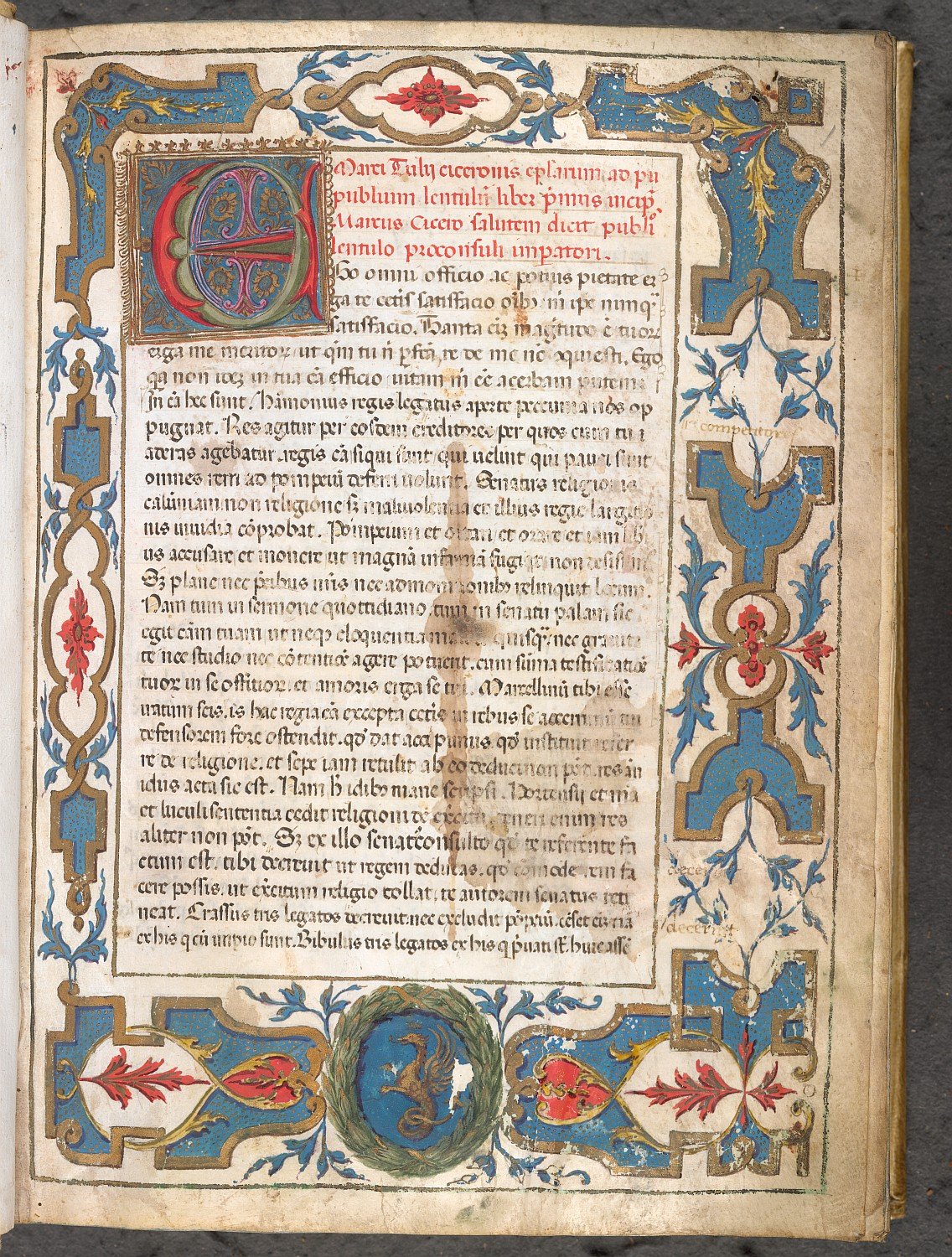|
Clodius Aesopus
Clodius (or Claudius) Aesopus was the most celebrated tragic actor of Ancient Rome in time of Cicero, that is, the 1st century BC, but the dates of his birth and death are not known. His name seems to show that he was a freedman of some member of the Clodian '' gens''. Cicero was on friendly terms with both Aesopus and Roscius, the equally distinguished comic actor, and did not disdain to profit by their instruction. Plutarch mentions it as reported of Aesopus, that, while representing Atreus deliberating how he should revenge himself on Thyestes, the actor forgot himself so far in the heat of action that with his truncheon he struck and killed one of the servants crossing the stage. Horace and other authors put Aesopus on a level with Roscius. Each was preeminent in his own field; Roscius in comedy, being, with respect to action and delivery (''pronuntiatio''), more rapid; Quintilian, ''Institutio Oratoria'' xi. 3. §111 Aesopus in tragedy, being more weighty. Aesopus took gr ... [...More Info...] [...Related Items...] OR: [Wikipedia] [Google] [Baidu] |
Tragedy
Tragedy (from the grc-gre, τραγῳδία, ''tragōidia'', ''tragōidia'') is a genre of drama based on human suffering and, mainly, the terrible or sorrowful events that befall a main character. Traditionally, the intention of tragedy is to invoke an accompanying catharsis, or a "pain hatawakens pleasure", for the audience. While many cultures have developed forms that provoke this paradoxical response, the term ''tragedy'' often refers to a specific tradition of drama that has played a unique and important role historically in the self-definition of Western civilization. That tradition has been multiple and discontinuous, yet the term has often been used to invoke a powerful effect of cultural identity and historical continuity—"the Greeks and the Elizabethans, in one cultural form; Hellenes and Christians, in a common activity," as Raymond Williams puts it. From its origins in the theatre of ancient Greece 2500 years ago, from which there survives only a fra ... [...More Info...] [...Related Items...] OR: [Wikipedia] [Google] [Baidu] |
De Officiis
''De Officiis'' (''On Duties'' or ''On Obligations'') is a political and ethical treatise by the Roman orator, philosopher, and statesman Marcus Tullius Cicero written in 44 BC. The treatise is divided into three books, in which Cicero expounds his conception of the best way to live, behave, and observe moral obligations. The work discusses what is honorable (Book I), what is to one's advantage (Book II), and what to do when the honorable and one's private interest apparently conflict (Book III). In the first two books Cicero was heavily influenced by the Stoic philosopher Panaetius, but wrote more independently for the third book. In addition to being a central component of liberal education for centuries, the work was held in high regard among many prolific philosophers and statesman including Augustine, Thomas Aquinas, Hugo Grotius, Montesquieu, Voltaire, and the American Founding Fathers. ''De Officiis'', along with Xenophon's ''Cyropaedia,'' are considered among the foundati ... [...More Info...] [...Related Items...] OR: [Wikipedia] [Google] [Baidu] |
Publius Cornelius Dolabella (consul 44 BC)
Publius Cornelius Dolabella ( – 43 BC, also known by his adoptive name Lentulus) was a Roman politician and general under the dictator Julius Caesar. He was by far the most important of the patrician Cornelii Dolabellae but he arranged for himself to be adopted into the plebeian Cornelii Lentuli so that he could become a plebeian tribune. He married Cicero's daughter, Tullia, although he frequently engaged in extramarital affairs. Throughout his life he was an extreme profligate, something that Plutarch wrote reflected ill upon his patron Julius Caesar. Biography Early life His father was likely the urban praetor of 69 BC, Publius Cornelius Dolabella, who also served as governor of Asia. Dolabella was related to the Servilii Caepiones. Dolabella's birth date is uncertain. Military and political careers In the Civil Wars (49–45 BC) Dolabella at first took the side of Pompey, but afterwards went over to Julius Caesar, and was present when Caesar prevailed at the Battle of P ... [...More Info...] [...Related Items...] OR: [Wikipedia] [Google] [Baidu] |
Suetonius
Gaius Suetonius Tranquillus (), commonly referred to as Suetonius ( ; c. AD 69 – after AD 122), was a Roman historian who wrote during the early Imperial era of the Roman Empire. His most important surviving work is a set of biographies of 12 successive Roman rulers, from Julius Caesar to Domitian, properly entitled ''De vita Caesarum''. Other works by Suetonius concerned the daily life of Rome, politics, oratory, and the lives of famous writers, including poets, historians, and grammarians. A few of these books have partially survived, but many have been lost. Life Gaius Suetonius Tranquillus was probably born about AD 69, a date deduced from his remarks describing himself as a "young man" 20 years after Nero's death. His place of birth is disputed, but most scholars place it in Hippo Regius, a small north African town in Numidia, in modern-day Algeria. It is certain that Suetonius came from a family of moderate social position, that his father, Suetonius Laetus, ... [...More Info...] [...Related Items...] OR: [Wikipedia] [Google] [Baidu] |
Macrobius Ambrosius Theodosius
Macrobius Ambrosius Theodosius, usually referred to as Macrobius (fl. AD 400), was a Roman provincial who lived during the early fifth century, during late antiquity, the period of time corresponding to the Later Roman Empire, and when Latin was as widespread as Greek among the elite. He is primarily known for his writings, which include the widely copied and read ''Commentarii in Somnium Scipionis'' ("Commentary on the Dream of Scipio") about ''Somnium Scipionis'', which was one of the most important sources for Neoplatonism in the Latin West during the Middle Ages; the ''Saturnalia'', a compendium of ancient Roman religious and antiquarian lore; and ''De differentiis et societatibus graeci latinique verbi'' ("On the Differences and Similarities of the Greek and Latin Verb"), which is now lost. He is the basis for the protagonist Manlius in Iain Pears' book '' The Dream of Scipio''. Name The correct order of his names is "Macrobius Ambrosius Theodosius", which is how it appears ... [...More Info...] [...Related Items...] OR: [Wikipedia] [Google] [Baidu] |
Penguin Classics
Penguin Classics is an imprint of Penguin Books under which classic works of literature are published in English, Spanish, Portuguese, and Korean among other languages. Literary critics see books in this series as important members of the Western canon, though many titles are translated or of non-Western origin; indeed, the series for decades from its creation included only translations, until it eventually incorporated the Penguin English Library imprint in 1986. The first Penguin Classic was E. V. Rieu's translation of ''The Odyssey'', published in 1946, and Rieu went on to become general editor of the series. Rieu sought out literary novelists such as Robert Graves and Dorothy Sayers as translators, believing they would avoid "the archaic flavour and the foreign idiom that renders many existing translations repellent to modern taste". In 1964 Betty Radice and Robert Baldick succeeded Rieu as joint editors, with Radice becoming sole editor in 1974 and serving as an editor for 2 ... [...More Info...] [...Related Items...] OR: [Wikipedia] [Google] [Baidu] |
Publius Cornelius Lentulus Spinther
Publius Cornelius Lentulus Spinther ( – 47 BC) was a Roman politician and general. Hailing from the patrician family of the Cornelii, he helped suppress the Catilinarian conspiracy during his term as curule aedile in 63 BC and later served as consul in 57 BC. Denied the opportunity to invade Egypt the following year, he nevertheless won some victories in his province of Cilicia and celebrated a triumph over it in 51 BC. In the run up to Caesar's civil war, he sided with Pompey and the senate. Captured by Caesar and pardoned at Corfinium in the opening months of the war, he made his way to Greece to join Pompey's forces. He is last attested to in early 47 BC. Early career Spinther belonged to the famous patrician gens Cornelia. He was the son of a homonymous father and received the cognomen "Spinther" supposedly from his resemblance of an actor by that name. Lucius Cornelius Lentulus Crus, who served as one of the consuls in the year 49 BC, was his ... [...More Info...] [...Related Items...] OR: [Wikipedia] [Google] [Baidu] |
Caecilia Metella (daughter Of Celer)
Caecilia Metella was daughter of Quintus Caecilius Metellus Celer and Clodia. She was an infamous woman in Rome during the late Republic and a celebrity of sorts. Biography Early life She was the daughter of the consul Quintus Caecilius Metellus Celer, while her mother Clodia was a notorious adulterer and possibly the inspiration for the figure of Lesbia in poetry. Caecilia seems to have taken after her mother. Marriage and scandals In 53 BC, Metella Celer was married to Publius Cornelius Lentulus Spinther, a conservative politician, allied to her father's family. Like her mother, Metella did not content herself with a simple married life. Briefly after the wedding she started an affair with Publius Cornelius Dolabella, a man of the opposite political spectrum. Spinther divorced her in 45 BC in the midst of a huge scandal. Cicero bitterly discusses the affair in his letters, because at the time, his daughter Tullia was Dolabella's wife. Metella went back to her family in absolu ... [...More Info...] [...Related Items...] OR: [Wikipedia] [Google] [Baidu] |
Sestertius
The ''sestertius'' (plural ''sestertii''), or sesterce (plural sesterces), was an Ancient Rome, ancient Roman Roman currency, coin. During the Roman Republic it was a small, silver coin issued only on rare occasions. During the Roman Empire it was a large brass coin. The name ''sestertius'' means "two and one half", referring to its nominal value of two and a half ''as (Roman coin), asses'' (a bronze Roman coin, singular ''as''), a value that was useful for commerce because it was one quarter of a denarius, a coin worth ten ''asses''. The name is derived from ''semis'', "half" and "tertius", "third", in which "third" refers to the third ''as'': the sestertius was worth two full ''asses'' and half of a third. English-language sources routinely use the original Latin form ''sestertius'', plural ''sestertii''; but older literature frequently uses ''sesterce'', plural ''sesterces'', ''terce'' being the English equivalent of ''tertius''. A modern shorthand for values in sestertii i ... [...More Info...] [...Related Items...] OR: [Wikipedia] [Google] [Baidu] |
Epistulae Ad Familiares
''Epistulae ad Familiares'' (''Letters to Friends'') is a collection of letters between Roman politician and orator Marcus Tullius Cicero and various public and private figures. The letters in this collection, together with Cicero's other letters, are considered the most reliable sources of information for the period leading up to the fall of the Roman Republic. Traditionally spanning 16 books, and featuring letters from 62 to 43 BCE, the collection was likely first published by Cicero's freedman and personal secretary Marcus Tullius Tiro sometime after Cicero's death in 43 BCE. A number of manuscript copies of this collection have reached modern times. The earliest witness to the text is a palimpsest on a single leaf, written in uncials of the fifth or sixth century ( CLA IV.443; it contains portions of letters 6.9 and 6.10. Two more fragments from 12th-century manuscripts – the outer bifolium of an eight-sheet gathering containing 2.1.1–2.17.4, and a single leaf co ... [...More Info...] [...Related Items...] OR: [Wikipedia] [Google] [Baidu] |
Theatre Of Pompey
The Theatre of Pompey ( la, Theatrum Pompeii, it, Teatro di Pompeo) was a structure in Ancient Rome built during the latter part of the Roman Republican era by Pompey the Great (Gnaeus Pompeius Magnus). Completed in 55BC, it was the first permanent theatre to be built in Rome. Its ruins are located at Largo di Torre Argentina. Enclosed by the large columned porticos was an expansive garden complex of fountains and statues. Along the stretch of the covered arcade were rooms dedicated to the exposition of art and other works collected by Pompey during his campaigns. On the opposite end of the garden complex was the Curia of Pompey for political meetings. The senate would often use this building along with a number of temples and halls that satisfied the requirements for their formal meetings. The curia is infamous as the place where Julius Caesar was assassinated by Brutus and Cassius during a session of the Senate on 15 March 44 BC. History Origin Pompey paid for this theatr ... [...More Info...] [...Related Items...] OR: [Wikipedia] [Google] [Baidu] |
Lucius Accius
Lucius Accius (; 170 – c. 86 BC), or Lucius Attius, was a Roman tragic poet and literary scholar. Accius was born in 170 BC at Pisaurum, a town founded in the Ager Gallicus in 184 BC. He was the son of a freedman and a freedwoman, probably from Rome. The year of his death is unknown, but he must have lived to a great age, since Cicero (born 106 BC, hence 64 years younger) writes of having conversed with him on literary matters. Literary works Accius was a prolific writer and enjoyed a very high reputation. The titles and considerable fragments (about 700 lines) of some fifty plays have been preserved. Judging from the titles and fragments, scholars have surmised that most, if not all, of these poems were tragic in nature, although Pliny the Younger ranks him among the erotic poets. His career as a poet can be traced over the course of 36 years from B.C. 140, to B.C. 104. Most of his poetical works were imitations or free translations of the Greek, especially Aeschylus. The ... [...More Info...] [...Related Items...] OR: [Wikipedia] [Google] [Baidu] |








